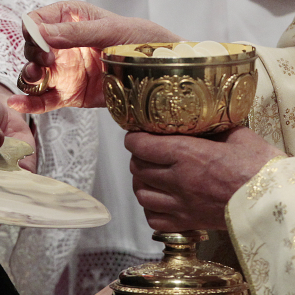The Bishop of Antwerp, Johan Bonny, has emerged during the synod as a leading progressive figure. Before last year’s gathering, which he did not attend, he wrote a paper calling for the synod to become aware of the changing realties of family life in contemporary society.
This included showing concern for gay people - through some sort of recognition of their unions - divorced people and the variety of relationships in modern life.
He hoped the synod might be able to bring about some change.
During a press conference at the Belgian College in Rome yesterday, however, he explained how he had been prevented from raising the question of homosexuality during the small group discussion he was part of.
He added that the final synod document, which is being voted on today, will not answer the many questions churches in the western world would like answered, such as whether to allow communion for the divorced and remarried.
It was an admission that this synod is likely to disappoint those who believe the Church will continue to lose credibility if it does not find ways to show it understands the huge shifts in family life and acceptance of gay people that have taken place over the last 50 years. Catholic Ireland, for example, voted overwhelmingly in favour of same-sex marriage in a referendum this year despite having only decriminalised homosexuality in 1993.
While Bishop Bonny was clearly frustrated at not being able to raise the question of gay Catholics he stressed the question will have to be addressed at another time by the Church.
In other words: don’t expect the synod to make any dramatic moves in this area but the matter is by no means closed either.
This is also likely to also be the case in relation to communion for divorced and remarried Catholics. The German-speaking bishops support the internal forum solution based on an individual’s conscience under the guidance of a priest.
There is also an opening for development based on the 1981 document from Pope John Paul II, Familiaris Consortio, which came out of the synod on the family in 1980. Crucially, it distinguished between different divorced and remarried situations - for example a spouse who had been abandoned and someone who had done the abandoning - whereas in the past the church had grouped all remarried Catholics together.
While the contentious questions are likely to remain unanswered perhaps the most important fruit of the synod is the synod itself.
Cardinal Godfried Danneels, a veteran of the 1980 family synod who was at the press conference with Bishop Bonny, said that during synods in the past if you disagreed your only option was silence whereas now you can speak. “The Church has changed,” he said.
While an enhanced synod is an important achievement for the Pope, it has also shown how difficult bringing about reform within the Church and has highlighted serious divisions. It is far from clear if his gamble has paid off.


 Loading ...
Loading ...
What do you think?
You can post as a subscriber user ...
User comments (0)